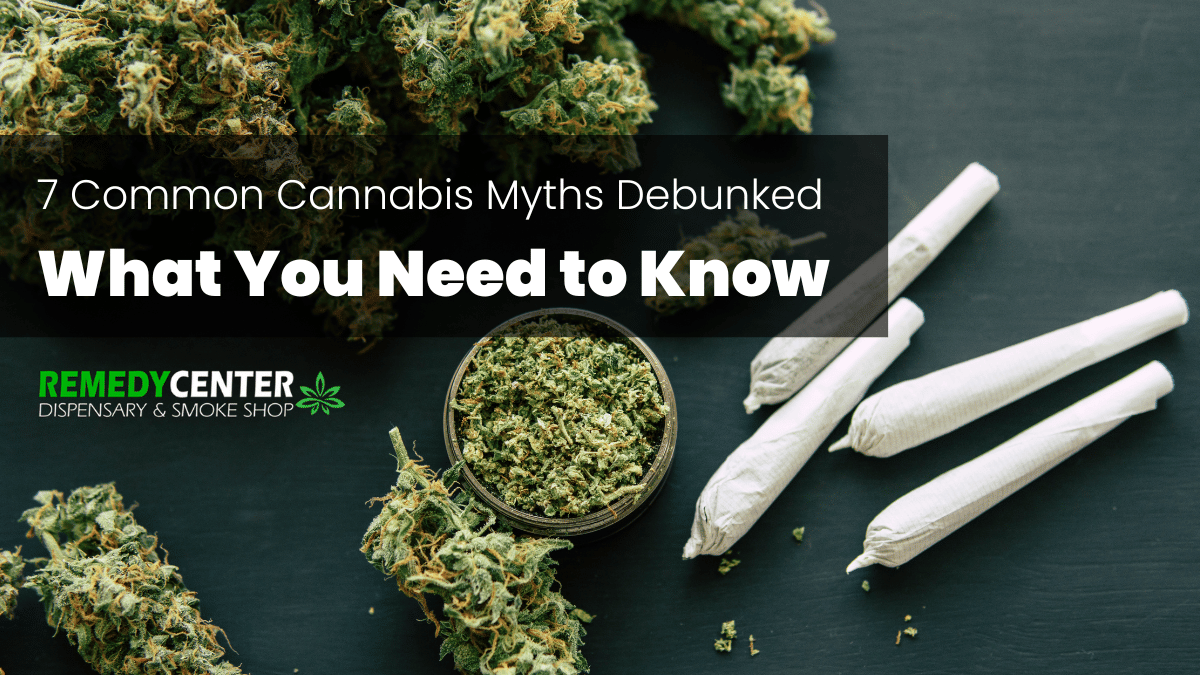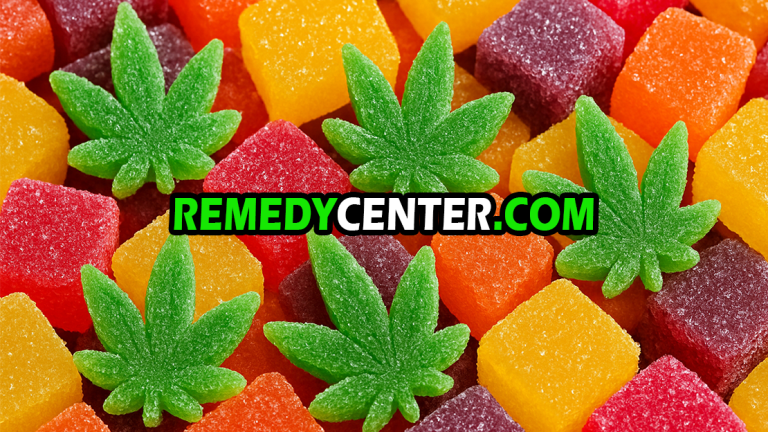
Listen instead Episodes • THC vs. THC-A Your browser does not support the audio element. THC vs. THC-A: Clearing Up the Confusion 1:11 First Things
FREE SHIPPING ON CONTINENTAL U.S. ORDERS OVER $100

Cannabis remains one of the most misunderstood substances, and continues to be surrounded by a haze of myths and misconceptions. With the changing legal landscape and increasing acceptance in various societies, it's crucial to separate fact from fiction. At Remedy Center, we’re here to provide accurate, evidence-based insights that educate and inform, helping to navigate the complexities of cannabis use with confidence.
The belief that higher levels of THC (tetrahydrocannabinol), the primary psychoactive component of cannabis, result in a better experience is widespread but incorrect. While THC is responsible for the “high” effect, higher concentrations can also lead to less pleasant reactions, such as anxiety or paranoia, particularly in inexperienced users. A balanced approach, taking into account both THC and CBD ratios, is essential. Consumers are encouraged to explore various strains and products to find what best meets their individual needs.
While it is true that cannabis can lead to dependency in some users, having cannabis addiction potential is considerably lower than many other substances. Research shows that approximately 9% of cannabis users develop a dependency. This is significantly lower when compared to substances like nicotine, with a dependency rate of around 15%, and alcohol at about 17%. Understanding and promoting responsible usage is crucial to managing and reducing the risk of cannabis dependency.
The "gateway drug" theory suggests that using cannabis can lead individuals to experiment with harder drugs. However, most cannabis users never transition to harder substances. This myth oversimplifies and obscures the complex mix of social, environmental, and biological factors that truly influence the progression of substance use.
This long-standing myth claims that cannabis use results in the permanent loss of brain cells. However, contemporary scientific studies have not found conclusive evidence to support this claim. On the contrary, research has suggested that cannabinoids might have neuroprotective properties, which could help preserve and even regenerate neural tissue.
The stereotype of the lazy stoner is both pervasive and unfounded. Cannabis users are a diverse group, many of whom are active and productive individuals. Certain strains of cannabis are noted for their ability to enhance creativity and energize users, contributing positively to their productivity and debunking the myth of inherent laziness among cannabis users.
A common misconception is that consuming raw cannabis can induce psychoactive effects. However, THC must be decarboxylated (heated) to transform from its acidic form, THCA, to its active form, THC. Therefore, eating raw cannabis leaves or buds will not produce the high associated with smoked or cooked cannabis products. Proper education on the use of cannabis, including the importance of heat in activating THC, is vital for understanding how to achieve desired effects safely.
While excessive cannabis use can result in unpleasant symptoms like paranoia, anxiety, and severe sedation, it's important to note that there have been no known cases of fatal overdoses from cannabis alone. The primary reason for this is that cannabinoid receptors are not found in the brainstem areas that control breathing, unlike opioid receptors. Therefore, cannabis does not lead to respiratory failure, making lethal overdoses highly unlikely.
At Remedy Center, our mission is to dismantle myths and provide a reliable, educational resource for our community. Whether you're new to cannabis or a seasoned enthusiast, we're here to support your journey with truthful, transparent information and high-quality products. If you have questions or need further clarification on any cannabis-related topics, don't hesitate to reach out to us or visit any of our locations.

Listen instead Episodes • THC vs. THC-A Your browser does not support the audio element. THC vs. THC-A: Clearing Up the Confusion 1:11 First Things

Listen instead 3 Episodes • THC Edible Insights Your browser does not support the audio element. What is a Safe Amount of THC to Take
Navigating the Benefits of CBD Oil: What You Need to Know CBD oil has become a key player in the world of natural remedies, offering
All Aboard The Strain Train In the fascinating world of cannabis, strains are at the heart of the user experience, influencing everything from the sensory
Brief History of Psychedelic Mushrooms and Their Traditional Use Mushrooms have been part of human history for thousands of years, utilized across various cultures for
Navigating the World of Sexual Enhancement Gummies & Other Options In the quest for improved intimacy and heightened sexual experiences, individuals today have more options
